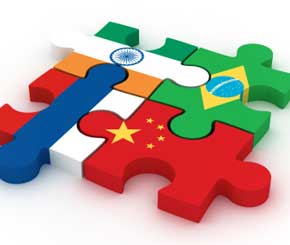'India, the Most Disappointing Nation Among BRIC'
By siliconindia
|
Friday, 09 December 2011, 01:30 IST |
5 Comments
Bangalore: If you ask Jim O'Neill of Goldman Sachs what was the most appropriate word for India's performance in the last decade on productivity, FDI and reforms, "Disappointment" is what he will say. O'Neill who coined the existence of the 'Big Four', Brazil, Russia, India and China terming them as the BRIC nations said that India was the most disappointing among the four when they considered the 10 year landmark.
Speaking at the London leg of the Reuters 2012 Investment Outlook Summit, O'Neill said, "All four countries have become bigger (economies) than I said they were going to be, even Russia. However there are important structural issues about all four and as we go into the 10-year anniversary, in some ways India is the most disappointing," as quoted by Reuters. Jim O'Neill is the chairman of Goldman Sachs Asset Management.
 "The current economic deterioration of India is the single most important under-reported story these days," tweeted Tyler Cowen, economics professor at George Mason University in the U.S. The tweet was highlighted by Business Insider.
"India has the risk of ... if they're not careful, a balance of payments crisis. They shouldn't raise people's hopes of FDI and then in a week say, 'we're only joking'," O'Neill said. "India's inability to raise its share of global FDI is very disappointing," he said.
United Nations data shows that India received less than $20 billion in FDI in the first six months of 2011, compared to more than $60 billion in China while Brazil and Russia took in $23 billion and $33 billion respectively.
The glacial reform pace has hit India's hopes for double-digit economic growth, O'Neill said, adding: "India is as bad as Russia is on governance and corruption and, in terms of use of technology, Russia is in fact much higher than India."
On the other BRICs, O'Neill said Brazil's main problem was an overvalued currency which puts the country in danger of "Dutch disease" - a term first used to describe how North Sea oil discoveries in the 1960s triggered a surge in Dutch energy exports but also in the Dutch currency, pummelling much of the country's manufacturing. China's challenge was to effectively manage a transition to a higher-consumption economy with slower growth, as quoted by Reuters.
"The current economic deterioration of India is the single most important under-reported story these days," tweeted Tyler Cowen, economics professor at George Mason University in the U.S. The tweet was highlighted by Business Insider.
"India has the risk of ... if they're not careful, a balance of payments crisis. They shouldn't raise people's hopes of FDI and then in a week say, 'we're only joking'," O'Neill said. "India's inability to raise its share of global FDI is very disappointing," he said.
United Nations data shows that India received less than $20 billion in FDI in the first six months of 2011, compared to more than $60 billion in China while Brazil and Russia took in $23 billion and $33 billion respectively.
The glacial reform pace has hit India's hopes for double-digit economic growth, O'Neill said, adding: "India is as bad as Russia is on governance and corruption and, in terms of use of technology, Russia is in fact much higher than India."
On the other BRICs, O'Neill said Brazil's main problem was an overvalued currency which puts the country in danger of "Dutch disease" - a term first used to describe how North Sea oil discoveries in the 1960s triggered a surge in Dutch energy exports but also in the Dutch currency, pummelling much of the country's manufacturing. China's challenge was to effectively manage a transition to a higher-consumption economy with slower growth, as quoted by Reuters.